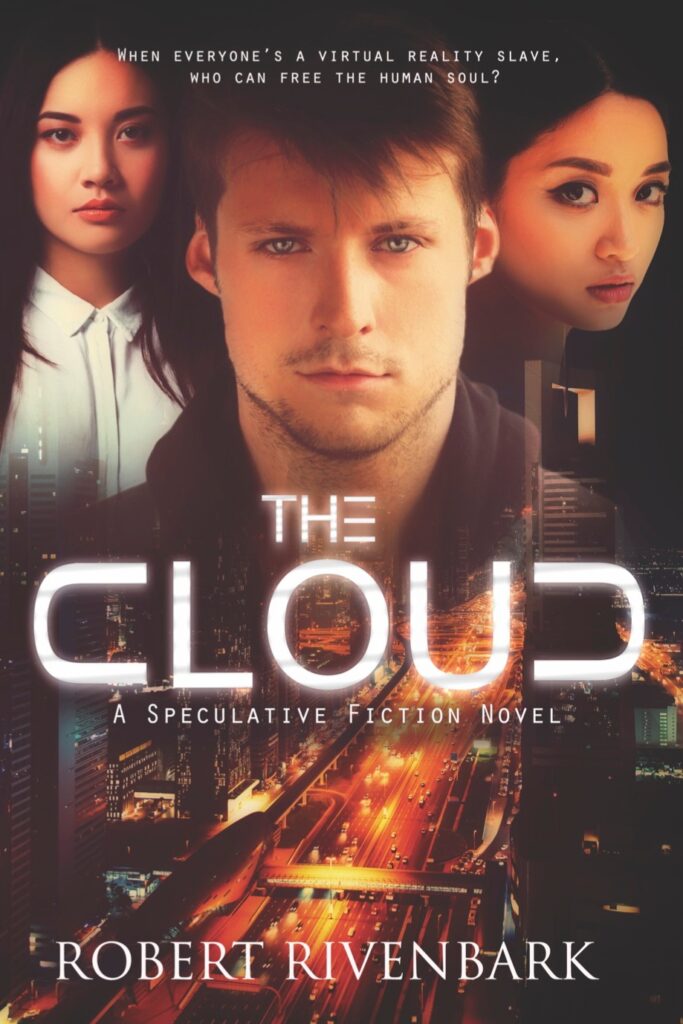
As soon as I accepted to read and review The Cloud, I became aware of the fact that I have more guilty pleasures than I like to admit. The one I’ve known for sure for a few years, namely horror movies with young stupid-acting people as protagonists, and now speculative dystopias about a world prisoner of a sort of tech-oligarchy.
It’s curious, because if you asked me a couple of years ago I would have just labeled the premise of such a book as very far fetched and imaginative: in 2025, the scenario depicted in the book seems much less speculative than in 2022, making me wonder for how long will it be labeled as such. Given the new world we live in, and given my technical background, I knew I had to read it.
The first comparison that came into my mind while reading the beginning of the book was Ready Player One because of how the world is on the brink of collapse and people resort to VR as a sort of escapism. Blaise, the protagonist (yes, his name is actually Blaise Pascal), is also similar to Wade Watts in his being good with tech and a bit too self-centred for my taste, but I must say that the similarities between the books stop here. The Cloud is much more interested in adding a few layers of complexity to such a situation, implicitly asking questions about such an oligarchic system and what it takes to live and survive in it. In this book, people are actually divided into castes based on their job: there are the slag, which are the manual workers, the SWAT (a sort of police I guess) and a few levels of people working in tech and coding VR games to keep the poor at bay with escapism.
Fun fact: as someone who’s always loved philosophy but chose an entire different major, and who is now starting to studying it again on my own, I couldn’t help but draw a parallel between the societal division depicted in The Cloud and the one theorized in Plato’s The Republic, with a society divided into three different classes. It was nice and spine-chilling at the same time to see how such a division can play out differently based on what we mean with “the best ones”. Plato said that they were supposed to be selfless, and maybe that would be enough to make such a society work for the greater good, and it actually looks like a very good idea until you realize how wrong (and in how many ways) its implementation in the real world can go.
At times I was annoyed at Blaise, and how self-absorbed and ambiguous he seems at times. In retrospective, though, I must say that this helps the reader understanding (or trying to understand at least) how hard it must be to live in such a world and deal with your conscience for someone who has at least a tiny spark of a moral compass. This tension between knowing that you are the one that can actually change the world for good but fearing of losing it all, especially if you don’t know if you can trust people around you. And I also found unreal how he had such a quick appeal on women, even though going further in the book you see how some of those encounters are ambiguous at best.
As a computer programmer in my day job, I couldn’t help but be amused by how the process of coding and getting past security firewalls is described in the book. But then, the story felt very compelling, well told and it flowed away so easily (I read it in two days) that accuracy didn’t matter all that much. Also because there is still a chance (smaller and smaller every day, but still) that The Cloud is just what it’s supposed to be (a great piece of speculative fiction) and not a prediction of how the real world is going to be in the future.
Be First to Comment